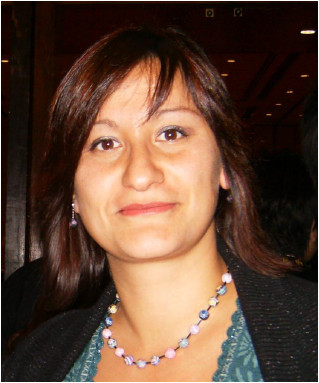Clara Mihaela Ionescu

Clara Mihaela Ionescu
tel.: +32 9 264 56 08
research unit: Dynamical Systems and Control (DYSC)
website
Clara M. Ionescu received an M.Sc. degree in industrial informatics and automation from the Dunarea de Jos University of Galati, Romania in 2003, and a PhD degree from Ghent University, Belgium in 2009 in biomedical engineering. Her doctoral research included several clinical trial data validation sets in hospitals in the Flemish region and Eastern Europe. Between 2011-2016, she was the recipient of the prestigious Flanders Research Fund post-doctoral scholarship. Since October 2016, she is professor at Ghent University. Her research includes modelling, identification and control of real-life processes across various disciplines. Since October 2022 she was awarded the prestigious European Research Council Consolidator Grant for optimizing multi-drug administration for general anesthesia. Recent research uses medical expertise and clinical data processed by artificial intelligence algorithms. She designed and validated several non-invasive monitoring devices medical applications, for which she received numerous international awards for innovation.
Keywords: Hybrid AI systems, Reinforcement learning, Deep learning, Supervised learning
- Ben Othman, Ghada, et al. “Artificial Intelligence-Driven Prognosis of Respiratory Mechanics : Forecasting Tissue Hysteresivity Using Long Short-Term Memory and Continuous Sensor Data.” SENSORS, vol. 24, no. 17, 2024, doi:10.3390/s24175544.
- Ben Othman, Ghada, et al. “Sustainability and Predictive Accuracy Evaluation of Gel and Embroidered Electrodes for ECG Monitoring.” BIOMEDICAL SIGNAL PROCESSING AND CONTROL, vol. 96, no. Part A, 2024, doi:10.1016/j.bspc.2024.106632.
- Ben Othman, Ghada, et al. “Selecting Optimal Long Short-Term Memory (LSTM) Architectures for Online Estimation of Mean Arterial Pressure (MAP) in Patients Undergoing General Anesthesia.” APPLIED SCIENCES-BASEL, vol. 14, no. 13, 2024, doi:10.3390/app14135556.
- Ghita, Mihaela, et al. “Parametric Modeling and Deep Learning for Enhancing Pain Assessment in Postanesthesia.” IEEE TRANSACTIONS ON BIOMEDICAL ENGINEERING, vol. 70, no. 10, 2023, pp. 2991–3002, doi:10.1109/TBME.2023.3274541.
